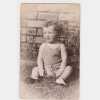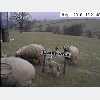| Profile | Posted by | Options | Post Date |

|
Shannon
|
Report
|
24 Apr 2010 06:19 |
|
Hi there Ann of green gables. just spotted this thread and was going to add a couple of surnames to the list and interestingly enough two names in my tree are in the first request. i have not previously had any info on origins of the names however I think you have helped me with research on "Toner" and maybe also " McCarthy ". These names were listed back in the first request and you mentioned they were familiar to you. Coincidence ( maybe ). Gets the juices flowing though. I will try to message the poster also. The two names are on different sides of the family ( McCarthy mine, Toner hubby.) Would be pretty funny if they were looking at the same families!
|

|
AnnCardiff
|
Report
|
22 Apr 2010 23:04 |
|
This most interesting surname is a variant of the Irish surname Lawlor, which is of Old Gaelic origin, as the Anglicized form of the Gaelic "O'Leathlobhair", composed of the Gaelic prefix "O", male descendant of, and a personal name composed of the elements "leath", half (meaning "somewhat, fairly"), and "-labor", leprous, sick. Hence the name seems to have been originally a byname for a man of unhealthy constitution. The name is also found as Lalour and Lalor, and the prefix has been almost entirely dropped in the present day. The surname itself is widespread in the province of Leinster, especially in County Leix (Laois). The O'Lalors were one of the Seven Septs of Leix, and were located near the famous Rock of Dunamase in County Leix, from where they were driven by English invaders during the reign of Queen Elizabeth 1. Peter Lalor (1823 - 1889) led the insurgent miners at Eureka, Australia, in 1854, and subsequently became a minister and speaker of the Legislative Council of Victoria. Catherine, daughter of William Lawler, was christened at St. Margaret's, Westminster, London, on August 18th 1633. A Coat of Arms granted to the family depicts a red lion rampant guardant on a gold shield. The first recorded spelling of the family name is shown to be that of Harry Lalor, Hero of the massacre of Mullaghmast, which was dated 1577, in "Records of County Leix", during the reign of Queen Elizabeth 1, known as "Good Queen Bess", 1558 - 1603. Surnames became necessary when governments introduced personal taxation. In England this was known as Poll Tax. Throughout the centuries, surnames in every country have continued to "develop" often leading to astonishing variants of the original spelling.
Read more: http://www.surnamedb.com/surname.aspx?name=Lawler#ixzz0lrx6SN00
|

|
BRC
|
Report
|
22 Apr 2010 21:37 |
|
Hi Tereasa
My Irish 2x g grandfather's surname was Lawler born in Tipperary, I would be interested in anything you can find.
Regards Brenda
|

|
Sue In Yorkshire.
|
Report
|
5 Apr 2010 08:55 |
|
nudge for Morag
|

|
AnnCardiff
|
Report
|
22 Mar 2010 15:51 |
|
Recorded in several spellings including Brassill, Brazil, and Breazeall, this surname has absolutely nothing whatsoever to do with the South American country. It is Irish, and was formerly only recorded in ancient times in the County of Wexford, in the south east cormer of the country. It derives from the pre 10th century Gaelic O' Breasail, which translates literally as "The descendant of the one involved in strife". Almost all true Gaelic surnames have a nickname as the base, and usually from ten centuries or more ago. These base names referred to the real or supposed characteristics of the then chief. Some of these characteristics were very robust indeed, and included such meanings as "ugly head" or "fickle", which not everybody would regard as complimentary. This does not seem to have worried the people of ancient times, suggesting perhaps that to them the meaning at the time, may have been different from today's interpretation. Early examples of the surname recording taken from authentic surviving records and charters include William Braseile, the son of John Braseile, christened at the church of St John the Baptist, Dublin, on November 7th 1652, Thomas Brazil, a witness at the town of Waterford, on October 19 1863, and Hannah Brassell, a witness at the town of Newmarket on Fergus, on July 22nd 1864.
|

|
AnnCardiff
|
Report
|
22 Mar 2010 15:49 |
|
this thread is just for the origin of names - is that what you want? if you are looking for assistance with research you should post this on Trying to Find
|

|
Marilyn Elizabeth
|
Report
|
22 Mar 2010 14:53 |
|
Hello
I hope you can help me - My great grandfather name was James Brazil Born 1836 somewhere in Ireland he came to England and married Isabella Briggs and lived in 36 Dock St East Monk Wearmouth Durham
|

|
AnnCardiff
|
Report
|
17 Feb 2010 22:10 |
|
If you are looking for other than the meaning of a surname, start a posting of your own - this thread is just for Irish surname meanings
This interesting surname has two distinct possible origins, each with its own history and derivation. Firstly, the name may be locational from the Old French "Pohier", indicating a native of Pois, a town in Picardy, North France, so called from the Old French "pois", fish, because of its well-stocked rivers. Locational surnames were originally given to the lord of the manor, or as a means of identification to those who left their place of origin to settle elsewhere. The surname from this source was introduced into England after the Norman Conquest of 1066. It entered Ireland in 1170 when a bearer of the name le Poer took part in Strongbow's invasion of Wexford. The name, initially Gaelicized "de Paor", and later Anglicized "Power", became one of the most completely Hibernicized of the surnames introduced at the time of the Anglo-Norman invasion. Poore may also have originated as a nickname for a poor man, or ironically for a miser, from the Middle English and Old French "povre, poure", poor. In the Subsidy Rolls of Sussex, dated 1296 to 1332, the name appears as "le Poer, le Power", and "Power", and Richard le Poor, Poore or Poure (deceased 1237), was successively bishop of Chichester, Salisbury, and Durham. A Coat of Arms granted to the Poore family of Oxfordshire, is a silver shield with three black bars nebulee, over all a gold bend. The first recorded spelling of the family name is shown to be that of Drogo Poher, which was dated 1127, in the "Ancient Charters of Gloucestershire", during the reign of King Henry 1, known as "The Lion of Justice", 1100 - 1135. Surnames became necessary when governments introduced personal taxation. In England this was known as Poll Tax. Throughout the centuries, surnames in every country have continued to "develop" often leading to astonishing variants of the original spelling
|

|
AnnCardiff
|
Report
|
17 Feb 2010 14:09 |
|
my pleasure!!
|

|
Patricia
|
Report
|
17 Feb 2010 13:06 |
|
Hi,
Thanks for that information very interesting, my ancestor was Ann Brady from Cavan, so this hits the spot.
Patricia
|

|
AnnCardiff
|
Report
|
16 Feb 2010 18:17 |
|
Recorded in many spellings including Brady, Brody, Brodie, Broady, and no doubt others, this is a surname of Anglo-Irish origins, of which it has no less than four, each with its own history and derivation. Firstly, it may derive from the Gaelic surname Mac Bradaigh meaning the male descendant of the thieving and dishonest chief!! Be that as it may the Brady's were a powerful clan in Ireland, their chief holding control over a large territory lying to the east of Cavan, and probably deserving of his reputation. Surprisingly the earliest recorded namebearer as Gilbert MacBrady, the bishop of Ardagh from 1396 to 1400. The second origin is English and a nickname given to a person with excellent eyesight. This is from the pre 7th century "brad-eage", meaning broad eye. The earliest recording as shown below is from this source. The third origin is habitational from a lost place known as "Broad island" and somewhere in England, whilst lastly the name may be topographical for a dweller by a wide piece of land through a forest cleared for agriculture or "brad gehaeg". The first recorded spelling of the family name is shown to be that of Roger Bradeie. This was dated 1170, in the cartulary of Oseney Abbey, Oxfordshire, whilst more recently (relatively) in 1615, Edwardus Broadey married Elizabetha Yarwoode at Sandbach in Cheshire, on November 10th of that year. Surnames became necessary when governments introduced personal taxation. In England this was sometimes known as Poll Tax. Throughout the centuries, surnames in every country have continued to "develop" often leading to astonishing variants of the original spelling
|

|
Patricia
|
Report
|
16 Feb 2010 17:38 |
|
HI
Could you look up Brady for me, Thank you.
Patricia
|

|
AnnCardiff
|
Report
|
25 Jan 2010 21:19 |
|
McGorley
This most interesting name with variant spellings Kerley, Turley, Terry and McTerrelly, found particularly in the counties of Galway and Roscommon, is an Anglicized form of the Gaelic name "Mac Thoirdealbhoigh". This is composed of the Gaelic prefix "mac", meaning "son of", and the personal name "Toridhealbhach", having as its first element the Scandinavian name "Thor" (God of Thunder) and the second element "dealbhach", "in the shape of". The name has also been Anglicized as "Terence" and "Terry". In the 1750 Census of Ireland, both MacTerlagh and MacTurlough, appear among the principal Irish names in County Limerick. The places Ballymacurley and Curleys Islands are both found in Roscommon, thus emphasising the connection of the name with that area. The name is also recorded in London Church Registers on October 21st 1621 when Sara Curley was christened at St. Botolph without Aldgate, London. At St. Peters, Drogheda, Louth, Gerald Curley married Mary White on February 5th 1748. Nicolas Curley aged 24 yrs., a labourer was one of the many Irish immigrants who left Ireland for New York, aboard the "Tassie", which departed from Galway on June 8th 1874. The first recorded spelling of the family name is shown to be that of Syslay Kerley which was dated February 18th 1569, who was christened at St. Andrew, Holborn, London, during the reign of Queen Elizabeth 1, known as "Good Queen Bess", 1558 - 1603. Surnames became necessary when governments introduced personal taxation. In England this was known as Poll Tax. Throughout the centuries, surnames in every country have continued to "develop" often leading to astonishing variants of the original spelling.
|

|
Renee
|
Report
|
25 Jan 2010 20:56 |
|
Hi Teresa,Could you look for the name McGORLEY please? Thanks
|

|
lexi
|
Report
|
19 Nov 2009 13:10 |
|
hi
thank you so much for that.. great stuff!!!
|

|
AnnCardiff
|
Report
|
18 Nov 2009 16:51 |
|
nothing on Mulhair sorry
|

|
AnnCardiff
|
Report
|
18 Nov 2009 16:50 |
|
Descended from Bran, King of Leinster, who died in 1052, this great Irish sept originated in County Kildare where they held extensive territory; however, soon after the Anglo-Norman invasion of 1169 - 1170, the sept migrated southwards and settled in Wicklow where they occupied the country between Rathdrum and Shillelagh. Their name in Irish is O'Broin, the Gaelic prefix "O" indicating "male descendant of", plus the personal byname Bron i.e. Bran, raven. The O'Broins, like their neighbours the O'Tooles, were particularly noteworthy for their resistance to foreign aggression, and they continued to inaugurate native chiefs up to the end of the 16th Century. The seat of their chiefs was at Ballinacor, County Wicklow, and the territory over which they held sway was known as Crioch Branach. The celebrated "Leabhar Branach" or "Book of the O'Byrnes" deals with the exploits of the clan in the 16th Century. Alderman Alfred Byrne (1882 - 1956), a distinguished recent member of the clan, was ten times Lord Mayor of Dublin. The Byrne Coat of Arms is a red shield with a chevron between three silver dexter hands couped at the wrist, the Crest being a mermaid with comb and mirror proper. The first recorded spelling of the family name is shown to be that of Fiacha Mac Hugh O'Byrne, military leader, which was dated 1544 - 1595, in the "Historical Records of Dublin", during the reign of Queen Elizabeth 1 of England, known as "Good Queen Bess", 1558 - 1603. Surnames became necessary when governments introduced personal taxation. In England this was known as Poll Tax. Throughout the centuries, surnames in every country have continued to "develop" often leading to astonishing variants of the original spelling.
|

|
AnnCardiff
|
Report
|
18 Nov 2009 15:05 |
|
This famous surname, has an unusual origin. Although widespread in Scotland and most of England from the medieval period, it actually derives from the Old English pre 7th Century word "scotti". This in former and ancient times denoted not a Scotsman, but an Irishman, and specifically a Gael, one who had taken part in conquering the west coast of Scotland in or about the 5th century a.d! In the English border counties though the word or name had a more general meaning of anybody from Scotland. Given the warlike conditions which applied for many centuries and may so again, the name was not always complimentary. Early examples of the recordings include: Uchtred filius Scot, in the register of Kelso Abbey in 1120, when he witnessed the foundation charter of the town of Selkirk, whilst in his work "Scotland under her early Kings", Robertson notes "Scotus as such described a Gael, in the same way that Flandrensis meant a Fleming". Amongst the nobilty of Scotland, Richard le Scot of Murthoxton, who rendered homage in 1296 to the government of Scotland, was the first ancestor of the ducal house of Buccleuch and Queensberry. The family also holds the earldom of Doncaster. Sir Walter Scott (1771 - 1832), novelist and poet, born in College Wynd, Edinburgh, came from a branch of this family. The first recorded spelling of the family name is shown to be that of Roger Scot, which was dated circa 1150, in the "Documents relating to the Danelaw", Lincolnshire, during the reign of King Stephen, known as "Count of Blois", 1135 - 1154. Surnames became necessary when governments introduced personal taxation. In England this was sometimes known as Poll Tax.
|

|
AnnCardiff
|
Report
|
18 Nov 2009 15:04 |
|
This very old and famous surname, equally popular in Scotland and England, has at least two possible origins, the first being a nickname given by the invading Angles and Saxons to the native Celts and Britons who were darker-haired and darker-skinned than themselves. There is an ancient fable that Wulfricus Niger, otherwise known as Wulfric the Black circa 980, received his name after blackening his face in order to pass undetected through his enemies. The second possible origin is as a shortened form of Black-Smith, a worker in cold metals, as distinct from a White (Smith), one who worked in hot metals. The surname was popular in Scotland from the 15th Century. Adam Black of Edinburgh (1784 - 1874), a publisher, acquired the rights to the Encyclopedia Britannica in 1827. No less than ten Coats of Arms were granted to families of this name. Those borne by Gilbert Black, Dean of the Guild of Aberdeen (1672), depict a black saltire between a red mullet in chief and a red crescent in base, on a silver shield with a black chief. A demi lion proper is on the Crest, and the Motto, "Non Crux, sed lux", translates as, "Not the cross, but its light". The first recorded spelling of the family name is shown to be that of Wulfhun des Blaca which was dated circa 901, in the "Old English Bynames Register", during the reign of King Edward, known as "The Elder", 899 - 924 A.D. Surnames became necessary when governments introduced personal taxation. In England this was known as Poll Tax. Throughout the centuries, surnames in every country have continued to "develop" often leading to astonishing variants of the original spelling.
|

|
AnnCardiff
|
Report
|
18 Nov 2009 15:03 |
|
This is one of the most distinguished Anglo-Scottish surnames. It is of French locational origin from the ancient castle of Saint Foi de Montgomery in the diocese of Lisieux, Normandy, or from St. Germain de Montgomery in Calvados. The name is first recorded in England in the latter half of the 11th Century, (see below). Roger de Montgomery, a Norman nobleman who took part in planning the Invasion of England in 1066, was created Earl of Arundel and granted vast estates in Sussex circa 1067. He obtained the earldom of Shewsbury in Shropshire in 1071. The former county of Montgomeryshire in Wales received its name from the Norman territory, the component elements being the Old French "mont", a hill, plus the Germanic personal name "Gumaric", meaning "man-power". Robert de Mundegumri was the first recorded namebearer in Scotland, a charter witness in circa 1165. The Montgomeries were granted the earldom of Eglington in 1507. Sir Bernard Montgomery, the British Field Marshall of the Second Word War, was arguably the most successful army commander since the days of the Duke of Wellington in 1815. The first recorded spelling of the family name is shown to be that of Hugo de Montgomeri. This was dated 1086, in the Domesday Book of Staffordshire, during the reign of King William 1st of England, and known as "The Conqueror", 1066 - 1087. Throughout the centuries, surnames in every country have continued to "develop" often leading to astonishing variants of the original spelling.
|

